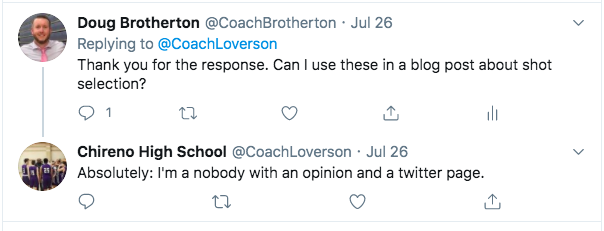CONFIRMED CONVICTION
It is an unprecedented time in the world. The global pandemic of 2020 has led coaches to jump into clinics, zoom calls, books, and social media. With the infinite number of resources, there is a strong chance that coaches are flooded with ideas, in a year that we will all see a smaller window to prepare our teams. This issue brings us back to a quote from Bob Richey, the head coach at Furman, who said, “coaches today need to have more conviction.” These seven words from Coach Richey have never been more true. As coaches are flooded with information, it is important that we have a clear understanding of our convictions. This will help coaches filter the information, to get to what is relevant to their programs, and it can help identify the areas for growth. So, what is CONVICTION:
Conviction
A firmly held belief or opinion
Having a firmly held belief or opinion is something that coaches do very well. In a lot of cases, this becomes apparent as coaches debate different points. There is a balance that is required between being open-minded and having conviction. There is a simple way that coaches can effectively jump into the conversations about our beliefs. Ask the question, “can you prove it?”
“There is a simple way that coaches can effectively jump into the conversations about our beliefs. Ask the question, “can you prove it?”
Asking coaches to prove their convictions will make these discussions more productive. It will lead to challenging our beliefs with unbiased information, which will ultimately change or confirm our convictions. Regardless of the outcome, we will know that we are improving as a coach, as we gain the necessary knowledge to create CONFIRMED CONVICTIONS. To confirm is to establish the truth or correctness of something previously believed, suspected, or feared to be the case. Convictions are an opinion, but CONFIRMED CONVICTIONS are the truth. This should be the goal of all coaches.
DEALING WITH KNOW-IT-ALLS
What do you do if you are in a situation where a coach stubbornly refuses to acknowledge the proof you are providing, or will not prove their own convictions? The answer is simple to say, but hard to do, and that is to just walk away. The moment that you get into one of these situations, you are dealing with someone who is either a KNOW-IT-ALL or a person who is not interested in other people’s opinions. Any coach who is a know-it-all is not interested in learning, growing, and improving. As coaches, we strive to be what Kevin Eastman refers to as a LEARN-IT-ALL, who never stops learning, evolving, improving, and growing. Here is an example of a conversation with a coach who is not interested in CONFIRMING CONVICTIONS.
I’m cool with it: Got to her spot with three dribbles. She probably makes that a high percentage of the time. https://t.co/PxA71We9j3
— Chireno High School (@CoachLoverson) July 26, 2020
Following this clip, we provided the coach with the following information.
Added Context:
WNBA teams shot 34% from mid range shots, outside the lane.This player shot 27% on jump shots off the dribble last year.
Follow up questions:
How often do you think she works on shooting from here?Does the defense want her to take this shot? pic.twitter.com/ot5prhmaPE
— Doug Brotherton (@CoachBrotherton) July 26, 2020
The response was to ignore the proof and provide more opinions.
Smooth&comfortable shooting it: She works on that shot daily: She is a pro. I’m sure she plays overseas. Hoops is her life. The defense didn’t have a choice. Came to the ball. Ball faked defender off balance now defender is chasing. Plenty of space missed the shot. https://t.co/makXlKSpmD
— Chireno High School (@CoachLoverson) July 26, 2020
I do not believe that this coach automatically falls into the KNOW-IT-ALL category, but it was very apparent that the coach was not interested in moving past an opinion and into unbiased proof on the topic.
As we said earlier, it is time to walk away.

In our upcoming PILOT PROGRAM, our eight month coaching development program, we will constantly search for CONFIRMED CONVICTIONS. A constant theme of the program will be to search for opportunities to ask coaches, “can you prove it?” In creating these CONFIRMED CONVICTIONS, we will help coaches develop an identity, confidence, and a program with elite buy-in. In conclusion, the next time you disagree with a coach, avoid the urge to debate your opinion, and start searching for unbiased proof on the topic.


